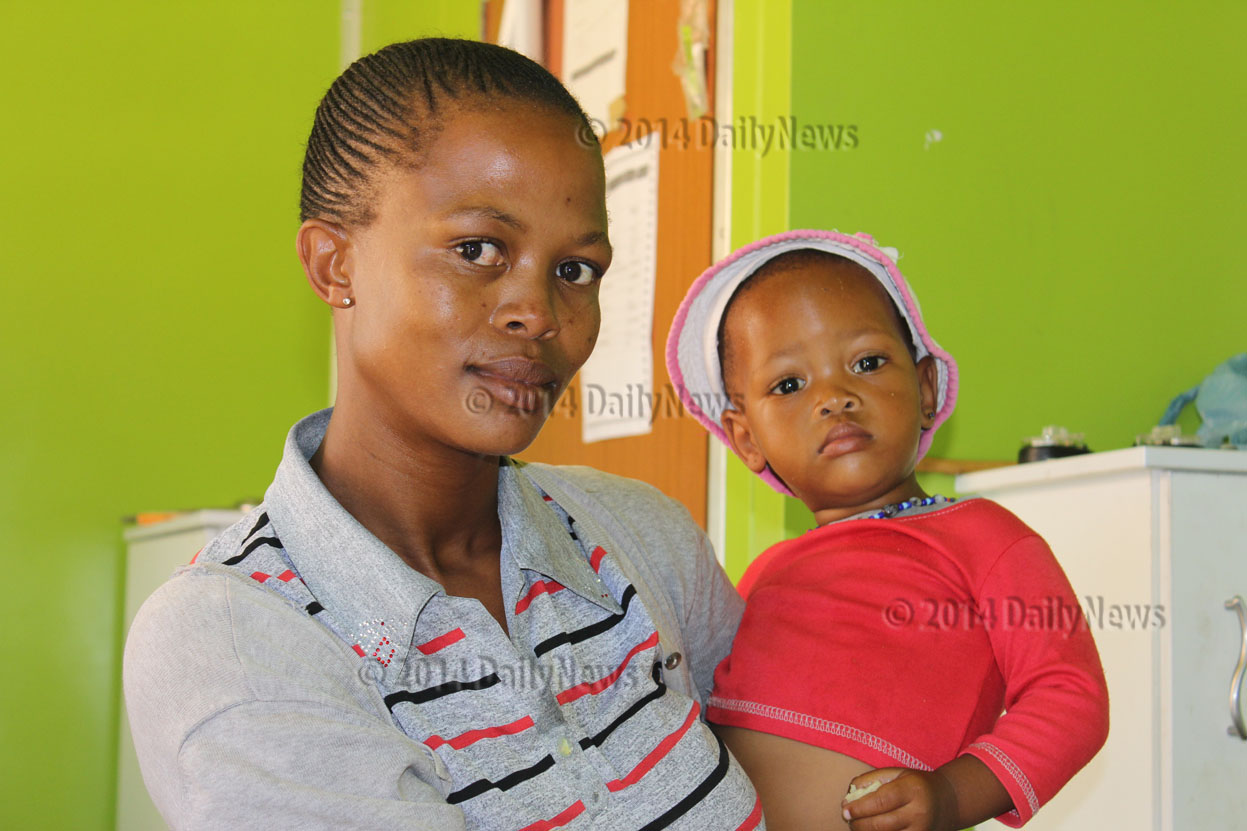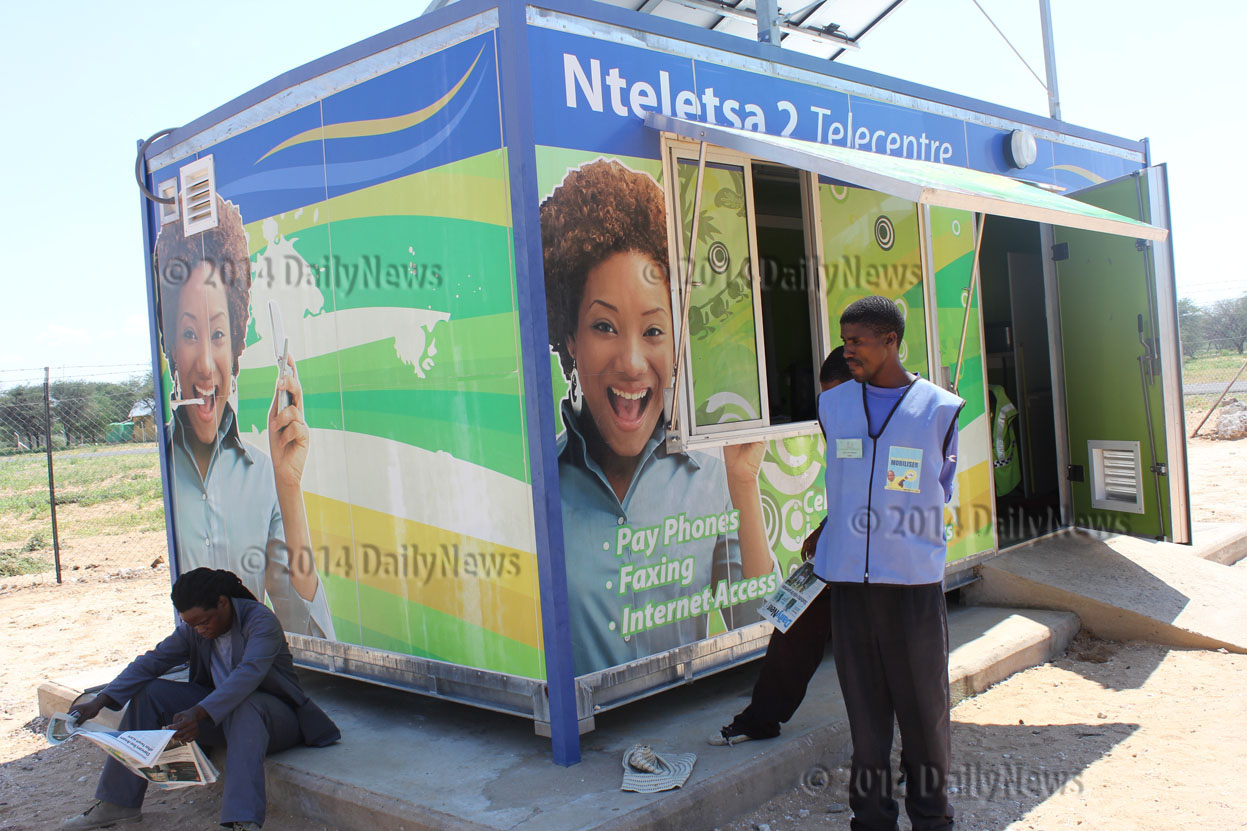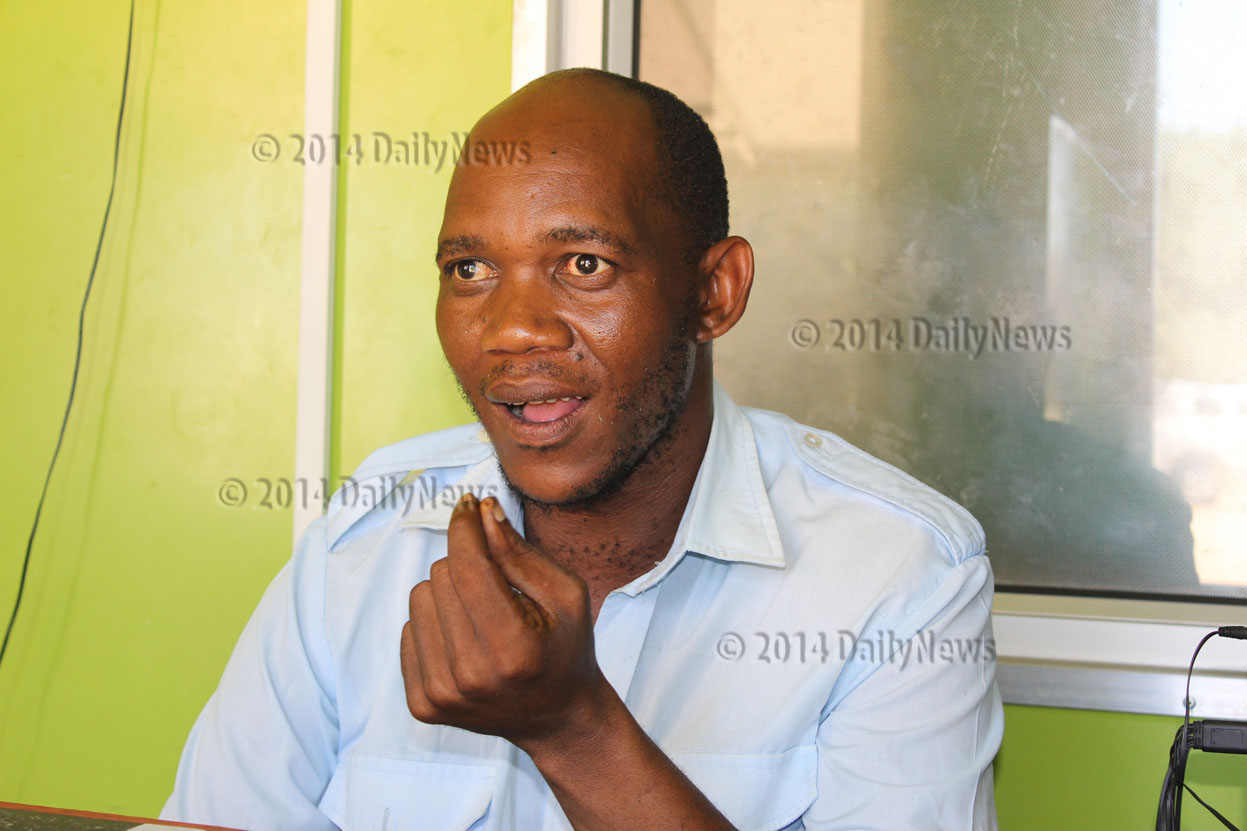Khekhenye settlement miss web
09 Mar 2014
Nestled two kilometres off the Letlhakeng/Morwamosu Road, just five kilometres before Motokwe, Khekhenye is a typical settlement by Botswana standards.
Like all the other villages of its stature, the only modern developments visible in Khekhenye are the village kgotla, the clinic and the school as well as the staff houses.
Owing to its lack of entertainment spots such as bars means the village goes to slumber rather early, and as soon as the clock ticks eight o’clock in the evening, the village is as silent as a graveyard.
For most of the residents, such lack of activity also means lack of business opportunities, except if one looks beyond the obvious, like the duo of Lenyatso Lotolo and Kesotegile Mpebane
In a small village such as Khekhenye whose populace is mostly the non-working class, nobody felt an information technology oriented business could thrive, but the duo are currently making a living by operating the village’s Nteletsa II project, thanks to the government and the Botswana Telecommunications Corporation (BTC) initiative a few years back.
The initiative was an effort to close the digital gap between the urban and rural areas, and despite it being associated with modernity amidst poverty in Khekhenye, the centre is actually a vital cog in the lives of the people of the small village.
“We offer various services such as photocopying, faxing and internet access, but most importantly to the villagers is that we also offer phone charging services,” he said.
Mr Lotolo, a single young man of 34-years, said the phone charging service is the one that brings most of the profit to the centre. “Our village has no electricity, which means that almost the whole village uses the centre to charge their mobile gadgets, and when civil servants are on long trips to our village they also turn to our centre to charge their phones,” he said.
However, Mr Lotolo said that primary school teachers, who make the majority of the civil servants in the village, have been connected with solar powered electricity and therefore hardly use the centre.
He however, said they use the centre occasionally as its power is more reliable than the one at the teachers’ living quarters.
“Unlike at the teachers’ quarters, our solar powers have strong back-up batteries that can hold on even in successive days of no sunlight,” he said. Mr Lotolo however, said their profits are reduced by the fact that they currently do not have internet and fax services.
“We have been in talks with BTC to come and fix the fax as well as the internet, and they came once and promised to come back, but they have not returned since then.
We are confident that if we had internet and a working fax line, our profits would improve as the two are vital aspects of communication,” he said. Mr Lotolo said back in 2010 when they started operating the centre it was complete with internet services and fax.
Mr Lotolo said lack of internet access and fax has forced them to look for other substitutes like selling airtime to augment the returns. He said they also depend on the nearby Motokwe village as it has no Nteletsa centre. “Most residents of Motokwe use our centre for photocopying because they do not have a centre like this at their village,” he said.
Operations of small community projects are often hampered by lack of financial literacy of those running them, but Mr Lotolo said such is not the case with their centre. “When we started back in 2010, BTC organised vital trainings for us. We went for a short business management course under Local Enterprise Authority (LEA) in Kang as well as a basic computer training course in Mochudi, so we are not at all blank in what we are doing,” he said.
He said they were four in total, but that the other two members have since left the project. Mr Lotolo however, admitted that the courses were too short to fully equip them with all the necessary skills as they ran for about a week each.
To augment that shortfall, the centre has since found a Good Samaritan in Ms Goitsemang Rapelang, a teacher at the local primary school, who has been useful in assisting with the skills needed in computers operations. “The members are not that fluent in basic operations like typing, so I mostly assist them whenever they need me,” said the Makaleng born educator.
Ms Rapelang said because of its powerful solar powered electricity, the centre has also more often come in handy for her school. “Before the centre was established, we used to struggle with classroom activities as well as examinations as we had to heavily rely on the blackboard and manila papers, but now our job has been made easier because we can photocopy material at the centre,” she said.
Ms Rapelang said the centre has come in handy for the youth who are applying for jobs as they can easily type application letters and photocopy, which saves them the long distance of travel as far as Kang. However, she said if the centre had a working internet and fax life would be much easier for the youths as well as the rest of its clientele.
Ms Mpebane, the other member at the centre, said even though the allowance they get is not that much, it is enough for them to acquire basic life necessities such as toiletry and food. “We operate the centre on behalf of the Village Development Committee (VDC), and initially it (VDC) paid us an allowance depending on how much profit we have made in that month,” she said.
Ms Mpebane said this was not enough to sustain them as the centre made just around P800 on a good month. “This increased the likelihood of us abandon the centre to register with Ipelegeng because it was more rewarding, so in order to retain us, an arrangement was made so that we get paid through Ipelegeng funds while still operating the centre,” she said.
She said the arrangement ensured that the centre kept running, and admitted that even before the arrangement was made, the allowance they got was better than just sitting idle at home. “For us who depend on it, life would be difficult without it,” she said of the centre.
Ms Mpebane also said that they have struck a symbiotic relationship with the school, in that they sometimes borrow photocopying papers there in times of needs, as much as they sometimes extend the same gesture to the school. “Such a mutual relationship has ensured that our business does not stop even if we haven’t yet found time to go and restock,” said the 25 year-old mother of one.
For the city folks who have access to high speed internet and countless internet cafes, or better still, those who have printers, faxes and internet in the comfort of their air-conditioned offices, the importance of projects such as the Nteletsa II may be taken for granted.
However, to the people of rural settlements like Khekhenye, the centre may mean the difference between meeting a job deadline and unemployment. Ends
Source : BOPA
Author : Olekantse Sennamose
Location : KHEKHENYE
Event : Interview
Date : 09 Mar 2014









